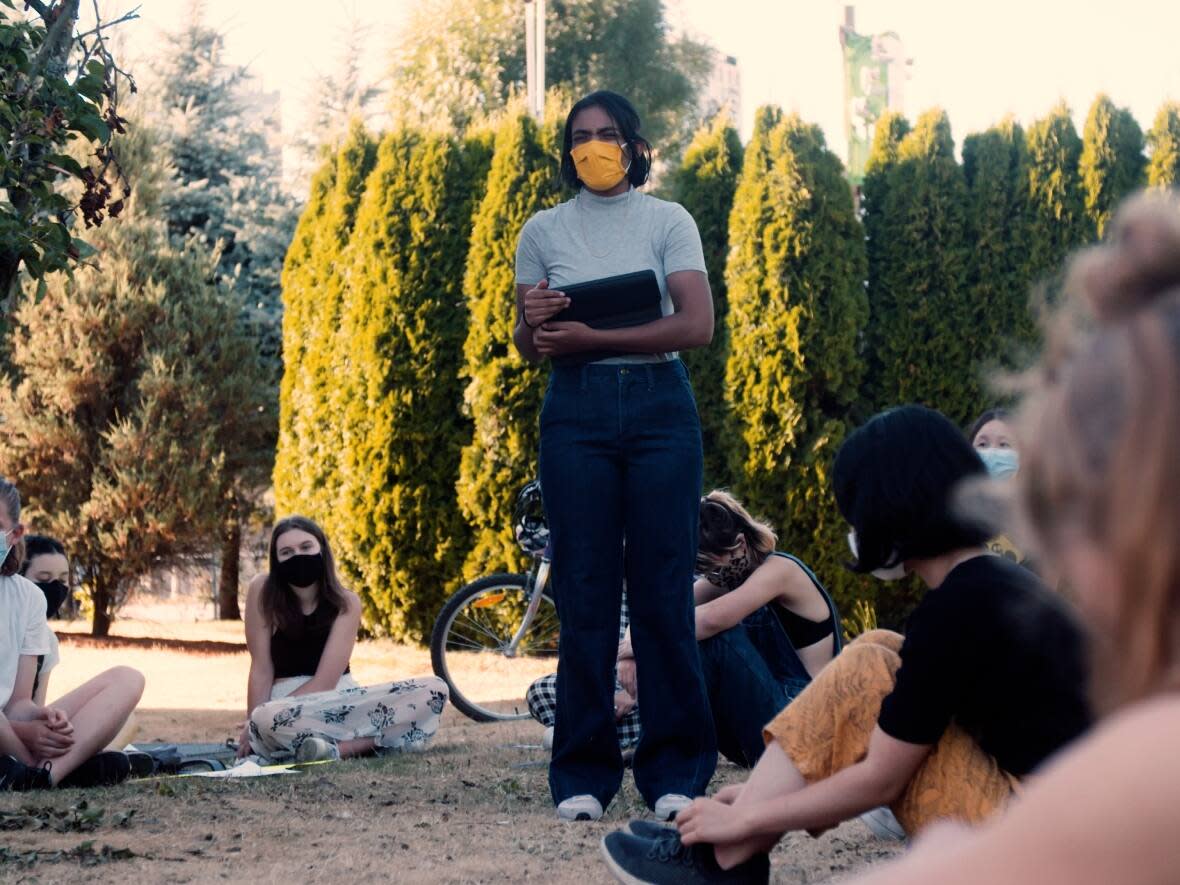4 young activists share their unique approach to climate action in CBC project

Our planet is changing. So is our journalism. This story is part of a CBC News initiative entitled Our Changing Planet to show and explain the effects of climate change and what is being done about it.
Members of a youth-led organization dedicated to fighting climate change shared ways to be more proactive about the climate in a series of new episodes on the CBC's Creator Network, a platform dedicated to amplifying unique perspectives.
Sustainabliteens' Katie Ly, Naisha Khan, Naomi Leung and Tavie Johnson each co-wrote and co-produced their own episode, which features their respective approaches to climate activism.
The non-profit is comprised of high school students fighting for climate justice across Metro Vancouver. In 2019, they organized the Vancouver climate protest, attended by thousands.
Katie Ly on holding policy-makers accountable
Katie Ly, social media coordinator for Sustainabiliteens, says she wants to hold decision-makers accountable.
After the city of Vancouver acknowledged a climate emergency in 2019, Ly says she wanted to put pressure on elected officials to put action behind the declaration.
In November 2020, Ly and her peers reached out to city councillors to discuss climate action. They also organized a demonstration in front of city hall, where they later spoke during the vote on the Climate Action Emergency Plan.
"We are a force to be reckoned with," Ly said.
According to Ly, there is a place in climate action for everybody, and there are many different ways to get involved.
"It doesn't have to be protesting or advocating. It can be as simple as having a conversation about climate."
Naisha Khan on climate action and intersectionality
Naisha Khan is combining her passions for climate action and racial justice, and says it's important to approach the climate movement with an intersectional lens — a framework that considers how different aspects of a person's identity, such as race, gender, sexual orientation, economic status or disability — can cause compounded discrimination.
"I feel like a resource, or a prop, often asked to speak up about any race-related issue … because I am just automatically categorized as this non-white organizer," said Khan.
She says while the climate movement has always focused on saving the environment from the effects of climate change, "it has failed to protect the racialized communities affected by the same environmental degradation."
Khan says the key to feeling safe and heard within the climate movement is through fostering an understanding of intersectionality and uplifting marginalized voices.
"This crisis did not just occur, and its impacts will not occur equally."
Naomi Leung on climate education in Canada
Education is at the core of addressing climate change for Naomi Leung.
For her episode, Leung spoke with Ellen Field, assistant professor at Lakehead University, who conducted a survey on climate change education in 2018.
Field's study found that Canadians think they are significantly more informed on the science around climate change than they actually are, with 43 per cent of participants failing a brief knowledge test.
The study also found that 86 per cent of Canadians agree they need more information on climate change.
"We deserve to feel informed, engaged, and empowered through education," said Leung.
Leung is also involved in Climate Education Reform B.C., another student-led movement that advocates for climate education, including its inequitable impacts, to be woven into all subjects in school.
"What if our educational system taught us about the collective power we have to face the biggest crises of our time?"
Tavie Johnson on integrating climate action to her career
Tavie Johnson says she plans to pursue a career in health care, and is enrolled in a life sciences degree at the University of Toronto this year. She says she hopes climate action can be integrated to her career path.
"Fighting for climate justice doesn't mean giving up pursuing your passions … if we are going to create a green economy, every occupation will have to be re-imagined from a sustainability and equity lens," said Johnson.
In her episode, Johnson spoke with Dr. Rashmi Chadha, a doctor with West Coast Doctors for Planetary Health, who has found several ways to engage in climate action inside and outside of her work as a health-care professional.
"Know that you will be able to do your climate advocacy work within whatever profession or discipline you chose," said Chadha.


